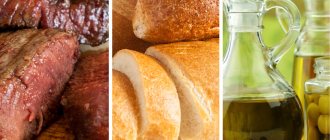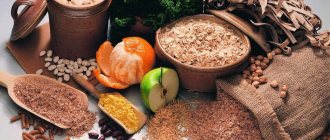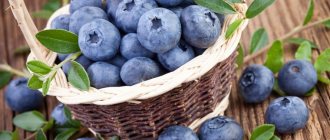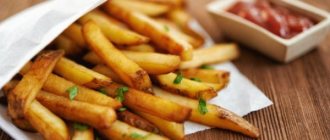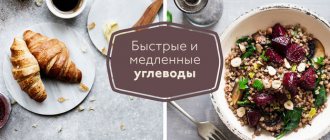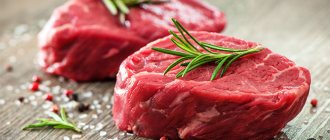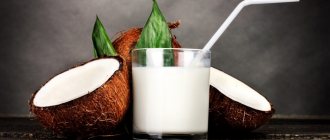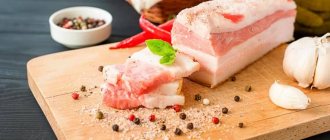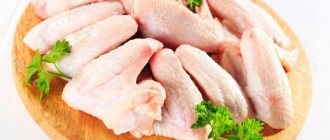Home » Products » Bananas: their health benefits and harms, nutrients
Products
16.12.2017
1128 Views
Bananas are one of the most popular fruits in the world. According to the United Nations, banana exports worldwide reached 18 million tons in 2020. About half is sent to the USA and European countries. According to the Ministry of Agriculture, everyone eats 5,171 kg of this fruit per year, making banana the most popular fruit in the country.
This yellow fruit is credited with many health benefits, says San Diego-based nutritionist Laura Flores: high levels of potassium, pectin, and lots of fiber. They are an excellent source of magnesium, vitamin C and vitamin B6.
"Bananas are known to reduce swelling, reduce the risk of type 2 diabetes, promote weight loss, strengthen the nervous system, and help produce white blood cells - all thanks to their high levels of vitamin B6," Florence told Live Science.
“Bananas are rich in antioxidants, which protect us from the free radicals we deal with every day, from sun damage to the lotion we put on our skin.”
Chemical composition and beneficial properties of the product
| Compound | Properties |
| Starch |
|
| Sucrose, fructose, glucose | |
| Malic and ascorbic acids | |
| Cellulose | |
| Pectins | |
Mineral complex:
| |
| Vitamins of group B, C, P, A, E. | |
| Carotene | |
| Tocopherol, riboflavin, tryptophan | |
| Thiamine |
As can be seen from table. 1 “sage fruit” has not only excellent taste, but also valuable properties for humans. Thanks to their diverse composition, bananas can improve your well-being and give you a good mood for the whole day.
More details about the fruit in the next video.
How many calories are in a banana, energy value per 100 grams
Due to the high sugar content, banana is a high-calorie product. One banana contains from 60 to 120 kcal (depending on size, variety and ripeness). It is worth noting that the riper the banana, the more calories it contains.
- Green bananas – 60-65 Kcal.
- Ripe bananas – 96-99 Kcal.
- Overripe bananas – 110-120 Kcal.
- Variety Platano – 50 Cal.
- Mini bananas – 90 Kcal.
On average, 100 grams of fruit contains 96-100 kcal.
Average banana weight
On average, an exotic fruit weighs 200 grams. But the mass of individual specimens is in the range from 150 to 250 grams.
What sizes do they come in and how many calories are in them?
To answer the question: “How much protein is in 1 banana?” - look at its size. We can highlight:
- extra large (from 23 cm),
- large (20-23 cm),
- medium (18-20 cm),
- small (13-18 cm) and
- extra small (13 cm).
The larger the fruit, the higher its content of nutrients, as well as calories.
Banana sorbet
A very light, refreshing dessert perfect for those watching their weight.
Composition of ingredients
To prepare banana sorbet you will need the following set of products:
- 4 ripe bananas;
- 1-2 lemons;
- 6 tbsp. l. powdered sugar, but the amount can be reduced to taste.
Step-by-step cooking process
To prepare banana sorbet you will need:
- Peel the bananas.
- Squeeze the juice from the lemons and remove the zest using a fine grater.
- Mix bananas with lemon juice in a blender, add powdered sugar and zest to taste.
- Beat the whole mass to a light airy consistency.
- Divide the mixture into molds and place in the freezer for at least 4 hours.
What can I add?
Instead of powdered sugar, you can use honey or any other natural sweetener. If you use cream instead of lemon juice, you get very tasty banana ice cream that can be eaten with any berries. For vegans, this recipe uses almond milk.
How to serve a dish
Garnish the sorbet with a mint leaf. You can pour melted dark chocolate over the dessert.
How much protein is in a banana
How much protein is in a banana? After all, this fruit is respected by all athletes. However, bananas should not be consumed as the only food; they are part of a healthy diet. No matter how unexpected it may sound, the answer will disappoint you: ONLY ONE GRAM. And that’s in the average copy!
But there are also small ones that contain even less of this protein. In addition, proteins can be complete, containing all the amino acids that are not produced in the body independently, or incomplete.
Just the same, banana contains very little protein, which is also not considered complete. And now you know if there is protein in a banana.
- If you love bananas but need protein, try adding high-protein cottage cheese and chicken breast to your menu.
- If you are not satisfied with the amount of protein in a natural menu, try different types of protein.
KBZHU banana
In order to include bananas in your diet, you need to know not only their chemical composition and calorie content, but also their nutritional value: the amount of proteins, fats and carbohydrates. On average, one banana contains:
- Proteins – 1.5 grams.
- Fats – 0.1 grams.
- Carbohydrates – 21.8 grams.
- Water – 74 grams.
- Fiber – 0.8 grams.
Vitamins
Of the fat-soluble vitamins, bananas contain A, beta-carotene, alpha-carotene, E and K. Of the water-soluble vitamins, there are vitamins C, B1, B2, B3 (PP), B4, B5, B6 and B9.
>’> >’> >’> >’> >’> >’> >’> >’> >’> >’> >’> >’> >’> >’> >’> >’> >’>
| Vitamins, content | Share of daily value per 100 g | |
| Vitamin A | 3.0 mcg | 0,3% |
| Beta carotene | 26.0 mcg | 0,5% |
| Alpha carotene | 25.0 mcg | 0,5% |
| Vitamin D | 0.0 µg | 0,0% |
| Vitamin D2 | n/a | 0,0% |
| Vitamin D3 | n/a | 0,0% |
| Vitamin E | 0.1 mg | 0,7% |
| Vitamin K | 0.5 mcg | 0,4% |
| Vitamin C | 8.7 mg | 9,7% |
| Vitamin B1 | 0.0 mg | 2,6% |
| Vitamin B2 | 0.1 mg | 5,6% |
| Vitamin B3 | 0.7 mg | 4,2% |
| Vitamin B4 | 9.8 mg | 2,0% |
| Vitamin B5 | 0.3 mg | 6,7% |
| Vitamin B6 | 0.4 mg | 28,2% |
| Vitamin B9 | 20.0 mcg | 5,0% |
| Vitamin B12 | 0.0 µg | 0,0% |
| Fat soluble Water soluble |
Bodymaster.ru recommends Fitness Trainers:
Athletes often use the fruit to build muscle mass, so it is recommended to consume it both before and after training.
Bananas can rightfully be called the most high-calorie fruit. In addition, they are rich in protein, minerals and vitamins. Due to their valuable composition, bananas are popular among athletes.
Before training, fruits are consumed to increase its duration, since they are able to charge the body with the necessary energy and maintain stable glucose levels. And:
- Post-workout bananas are used to close the carbohydrate window.
- Men will probably be happy to know that these miracle fruits speed up the body’s recovery after workouts.
- Also, ladies can become more beautiful by consuming these very fruits on the same basis as men: their complexion will improve, cells will be renewed, and oxygen will be transported to the skin tissues much better.
The benefits and harms of bananas for the body
You've probably often heard talk about the benefits of bananas. The fact is that they are good for nutrition not only because they are a fruit rich in vitamins, bananas have many other important benefits. It’s no wonder that fans of a raw food diet, vegans and vegetarians idolize it and add it to the bulk of their diets.
An average 18 cm fruit, by the way, in addition to protein and 105 calories, has a milligram of sodium, 27 grams of total carbohydrates and 3 grams of dietary fiber. Bananas are completely free of fat and cholesterol, which is not surprising, since they are a plant food.
If you previously wondered how many grams of protein are in a banana, then you underestimated the importance of other nutrients.
What vitamins are contained in bananas and their benefits?
The fruit is rich in various vitamins and minerals. Let's figure it out step by step:
- vitamin A in a banana, which will relieve fatigue and improve visual perception. Your eyes need rest. Well, the natural color of the fruit – pale yellow – is pleasant and joyful to look at.
- Vitamin C in one average fruit contains 17-18% of the daily value, which is useful for colds. So the next time you’re sick, tea with honey and a warm blanket won’t do.
- The 2% iron contained in a banana is beneficial for those suffering from anemia, because the blood flows more cheerfully in the veins, saturating all cells with oxygen.
- 13% potassium can reduce the risk of heart attacks and strokes and renew the condition of blood vessels, preventing hypertension.
- 1% calcium also contains a banana and will provide the body with the microelement necessary for bones and tooth enamel.
- In addition, the average fruit also contains vitamin B-6 (34%) and fiber (11%).
The digestive tract is also not left out. There are benefits for him too. Thanks to a banana, food is digested faster, excess fluid is removed from the body, as a result of which swelling is relieved, and the kidneys work more efficiently.
Contraindications
Unfortunately, bananas are contraindicated for some people:
- Increased blood density;
- Varicose veins;
- Rapid blood clotting;
- Thrombophlebitis;
- Excessive consumption of unripe bananas can lead to stomach upset;
- Diabetes;
- Overweight;
- Increased cholesterol levels.
Dietetics
Bananas are able to rid the human body of excess water, as well as waste and toxins. Due to this property, nutritionists have developed several options for banana diets.
The toughest of them is called “Banana Split”. It is not recommended to “sit” on it for more than three days. Its essence is to consume low-fat milk and bananas in a ratio of three to three.
Bananas for the little ones
The content of protein and valuable microelements in bananas allows them to be included in the diet of little ones. Fruits are hypoallergenic; therefore, children's doctors recommend making puree and smoothies from bananas.
Anti-smoking
The conducted research suggests that the exotic fruit can reduce the craving for smoking. The results showed that eating 2-3 bananas a day reduces the need for nicotine by 2 times. Scientists explain this by the fact that bananas contain magnesium, potassium and vitamins A, C and B.
After eating a banana, it produces a “happiness hormone”, which also plays an important role.
Recommendations for use
Of course, the easiest way is to peel the fruit and eat it right away! Are there any restrictions? It is not recommended to eat bananas if you have the following contraindications:
- Irritable bowel syndrome;
- Diseases of the heart and blood vessels;
- Phlebeurysm;
- Excess weight.
In general, eating two, maximum three, things every day is enough! You should not exceed the norm; you may encounter unpleasant consequences. The composition of the fruit is quite rich in potassium and magnesium - these elements in excess quantities negatively affect the functioning of all body systems. In addition, the product removes fluid from the body, which has a bad effect on overall well-being.
We also recommend: Star anise and anise: what is the difference and can it be replaced?
Banana peel as a cure for illness
Application
- Compresses to relieve severe headaches.
- A decoction to combat hypertension.
- Treatment of skin diseases: burns, abscesses, rashes, warts, acne.
- Relieving redness and inflammation from the eyes.
When taken orally, it has the following beneficial properties:
- Ensuring healthy sleep.
- Reducing cholesterol.
- Promotes weight loss.
- Prevention of oncology.
Banana peel decoction recipe:
- Take banana skin.
- Rinse with water.
- Boil in boiling water for 10-15 minutes. We take it out.
- Cool the broth.
- Add to juice, tea, compote, smoothies.
Application
In cooking, bananas are used in raw and heat-treated form.
The sweet pulp is used in the preparation of ice cream, baked goods, desserts, fruit salads, as well as marmalade, beer and even vinegar. A very popular dish is a fondue-like dish where banana pieces are dipped in hot caramel or chocolate. In India, bananas are used as a raw material for the production of champagne, the recipe of which is kept secret.
In Japan, bananas serve as the basis for making fabrics, and a special dye is made from the roots of the plant that can fight germs and viruses. It is believed that people who wear clothes dyed with this dye suffer less from colds and flu.
In folk medicine, a banana-honey cocktail is used to treat coughs; kvass is prepared from the peel, which is used to prevent cancer. A simple banana pulp paste used as a face mask will make your skin beautiful, youthful and elastic.
10, total, today
( 190 votes, average: 4.69 out of 5)
Garcinia Cambogia for weight loss: benefits and harm
Amaranth: benefits and harm
